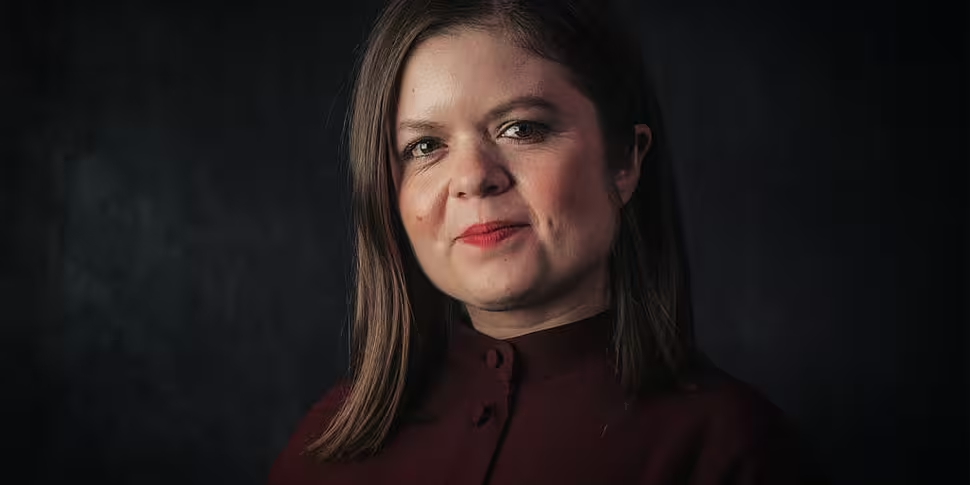Children should be taught that they are "enough as they are" and that they don't need to change in order to fit in.
That's according to disability advocate and writer Sinéad Burke who has written a book for children reflecting on her experiences as a teacher and a disabled woman.
'Break the Mould' aims to give lessons for all on how to find our place in the world.
Ms Burke, who is a little person, appeared on the cover of British Vogue last year as one of 15 "trailblazing changemakers".
Speaking on Newstalk's Moncrieff programme, she said she wrote the book since the advent of COVID-19, and that her life and work now look very different.
She said: "I think the pandemic has taken an effect on all of us, on our mental health, our understanding and control of reality, it's been challenging but optimistic."
Ms Burke said her book hopes to show "the power of stories to make people seen and heard".
She said: "When I was in primary school, all I wanted to do was go to the classroom library to pick up a book and for the cover to look like me, for the stories inside to look like me so I could translate the conversation to the people I went to school with."
She added that as a young girl, such representation "was not there".
She said: "I think still we don't hear or see disabled voices be they visible or invisible within popular culture and within culture at large and I think that affects so many people in realising what their potential is because it's that phrase, if you can't see it you can't be it.
"The book is using my experience as a little person and the lens that I have on the world, but using it as a case study to explore broad themes for children.
"A couple of the key messages are encouraging children that they are enough just as they are, that we shouldn't be trying to change people in order to fit in, that we should be changing the world so that it works for everyone.
"It's trying to leverage my experiences of being a teacher to encourage people to believe that anything is possible and we all have the tools within us to make the world a safer place for people just to be themselves."
Ms Burke said she has always been the centre of attention, but the last ten years have been a process of being the centre of attention for different reasons.
She said: "I stand at the height of three foot five inches tall and for as long as I can remember, people have stared and sometimes laughed and pointed, called me names, taken videos and photographs of me without my consent, just because of my disability.
"I think in many ways my work in fashion was rooted in that because people made assumptions over who I was and what I could do based on what I looked like.
"It gives me agency over my own aesthetic and yet it wasn't an industry I could access because they didn't think of me.
"I think the work I do in education and fashion is rooted in having agency just for myself but ensuring that dignity and agency are resources that we give to people to be who they are."
Ms Burke said her parents were the people who gave her such agency as her father is also a little person while her mother is of average height.
She said: "From the earliest of ages they created this unified front where they always told me I could do anything I wanted to do.
"I might have a different route or methodology than my friends or my siblings but it was all possible.
"They always encouraged me to dream big with this notion that even if I failed, I would learn something from the process that the worst that could happen was that it wouldn't work out.
"They were the advocates for me when I wasn't old enough to be an advocate for myself.
She recalled a pivotal moment when she was 11 when her parents said it was her decision whether to undergo surgery that would make her taller.
She said: "The surgery was wrong for me but it might not be wrong for others.
"What made me say no was realising that the only reason I would be undertaking it would be to make other people more comfortable, to fit in, to look closer to what everybody else looks like.
"I realised that if other girls only wanted to be my friend because I changed myself to fit in, they weren't the people I wanted to be friends with.
"I was good enough just as I was and I think that set me up in terms of a mind frame when I became a teenager.
"There were still huge moments of challenge but I think it created an ignition in self-confidence."
"It's about more than just the image," @TheSineadBurke on the importance of visibility and representation. pic.twitter.com/TtpRZFWfFY
— NewstalkFM (@NewstalkFM) October 19, 2020









